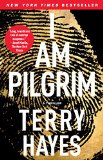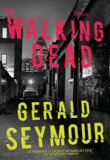Summary | Excerpt | Reviews | Beyond the book | Read-Alikes | Genres & Themes | Author Bio

From the book jacket: The son of an
Irish-American mother and an Egyptian father who disappeared
when he was three, Ahmad turned to Islam at the age of eleven.
He feels his faith threatened by the materialistic, hedonistic
society he sees around him in the slumping factory town of New
Prospect, in northern New Jersey. Neither the world-weary,
depressed guidance counselor at Central High School, Jack Levy,
nor Ahmad’s mischievously seductive black classmate, Joryleen
Grant, succeeds in diverting the boy from what his religion
calls the Straight Path. When he finds employment in a furniture
store owned by a family of recently immigrated Lebanese, the
threads of a plot gather around him, with reverberations that
rouse the Department of Homeland Security. But to quote the
Qur’an: Of those who plot, God is the best.
Comment: John Updike’s controversial twenty-second
novel has garnered reviews both positive and negative. All the
prepublication reviews were generally positive, with starred
reviews from Publishers Weekly and Booklist ("deserves the label
of masterpiece"). Those that come down against the book
generally don't do so because of the subject matter but because
they feel that the voice of Ahmad lacks credibility. As
the Boston Herald puts it: "Updike’s jerry-built,
between-two-worlds son of an absent Egyptian father and artsy
Irish-American mother, exposes himself as a wooden prop in a
scarcely thrilling moral drama. He’s a ticking bomber-in-waiting
from the get-go, though not a very believable one: If there are
high schoolers today who walk around musing, as Ahmad does,
about 'maieutic irony*,' I haven’t met them - and I don’t
believe Updike has either."
Ahmad and his teacher compare New York to the wealthy and
prideful people of Ad, who were struck down in their prime (see
sidebar); and Updike does not pull any punches as he views
complacent, overindulgent, morally befuddled urban America
through their eyes.
In addition to Ahmad's viewpoint, we also see through the eyes
of an elderly Lebanese immigrant; that immigrant's American-born
son; and a Yemeni imam, who all, in turn, interpret what they
consider America to be based on their own experience - an
experience set against the backdrop of the decaying remnants of
industrial New Jersey, once a prospering area energized by
immigrants.
*According to the OED, maieutic = pertaining to (intellectual) midwifery; i.e. to the Socratic process of helping a person to bring into full consciousness conceptions previously latent in his mind (from the Greek maieuesthai, to act as midwife).
![]() This review was originally published in The BookBrowse Review in July 2006, and has been updated for the
June 2007 edition.
Click here to go to this issue.
This review was originally published in The BookBrowse Review in July 2006, and has been updated for the
June 2007 edition.
Click here to go to this issue.

If you liked Terrorist, try these:

by Terry Hayes
Published 2014
This astonishing debut espionage thriller depicts the collision course between two geniuses, one a tortured hero and one a determined terrorist, in a breakneck story reminiscent of John le Carré and Robert Ludlum at their finest.

by Gerald Seymour
Published 2008
A young man starts a journey from a dusty village in Saudi Arabia. An armed protection officer is charged with neutralizing the growing menace to London's safety. With intelligence and deep understanding, Seymour shows us the world in which we live, with all its dangers and complexities, and the choices we are forced to make.
Your guide toexceptional books
BookBrowse seeks out and recommends the best in contemporary fiction and nonfiction—books that not only engage and entertain but also deepen our understanding of ourselves and the world around us.